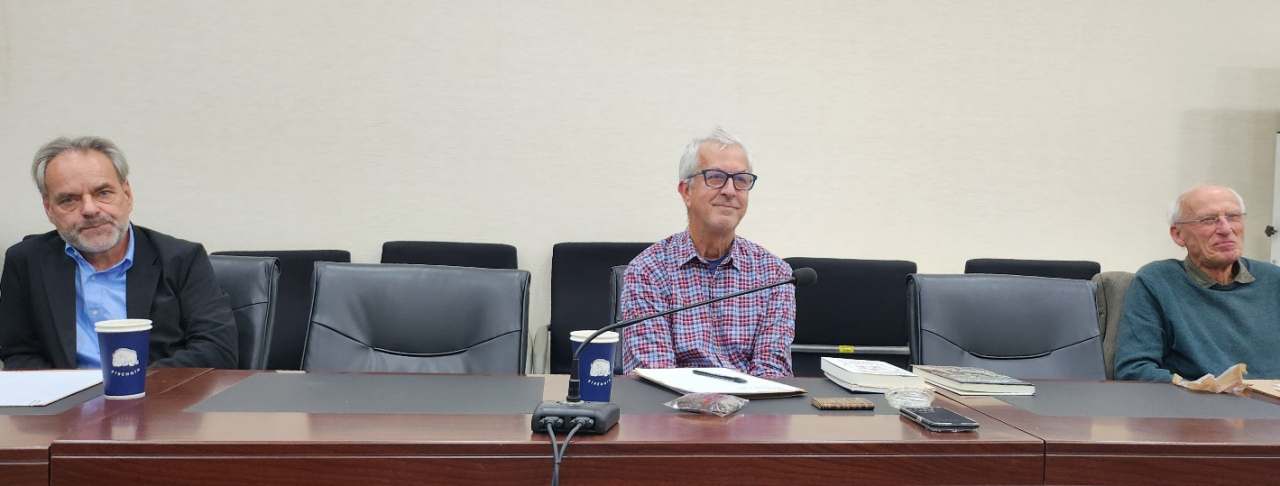
Japan's stance on the territorial dispute regarding Dokdo, the easternmost islets claimed by Korea and Japan, has been described as “inexcusably hypocritical” by a US academic. Walter Hatch, an emeritus professor of government at Colby College, highlighted Japan's reluctance to take the dispute to the International Court of Justice (ICJ), fearing that it would provide China with moral leverage concerning its own territorial claims in the East China Sea.
Hatch's remarks were made during a media interview prior to the “Paths to Historical Reconciliation” forum in Seoul, organized by the Northeast Asian History Foundation. He criticized Japan's inconsistent political stance, particularly regarding its control over the Senkaku Islands, which are also claimed by China.
The scholar also addressed the longstanding tensions between Korea and Japan stemming from World War II-era forced labor issues. In a deal reached in March of the previous year, Korea opted to compensate victims using funds from Korean companies, despite Japanese opposition to a Korean court ruling which mandated that Japanese companies provide compensation.
Critics have labeled this agreement as “too soft” on Japan, which has not issued a direct apology to the victims. Hatch expressed that Japan's failure to show a genuine willingness to cooperate with Korea outside of US influence leads many Koreans to perceive Japanese apologies as insincere.
Falk Pingel, a former deputy director at the Georg Eckert Institute for International Textbook Research, emphasized that a political apology lacks credibility unless it comes from the actual perpetrators. He asserted that acknowledging responsibility for past actions is essential for fostering a common understanding of war crimes.
Eckhardt Fuchs, director of the Leibniz Institute for Educational Media, remarked that despite the complexities, reconciliation remains feasible. He noted that while the comfort women issue was absent from history textbooks two decades ago, current educational materials now address the forced labor of Korean women in wartime brothels.
Fuchs pointed out that while these textbooks have yet to explicitly categorize the acts as war crimes, their inclusion in educational discourse represents progress. He advocated for teaching diverse interpretations of history through a transnational approach, which situates national histories within a broader European context.
During the forum, the scholars discussed their perspectives on reconciliation, with Park Ji-hang, president of the Northeast Asian History Foundation, expressing hope that the event would contribute to finding peace in the region, which she identified as a significant contemporary challenge.
미국의 한 학자에 따르면, 일본의 독도에 대한 입장은 "변명할 수 없이 위선적"이다.
메인주 콜비 대학교의 명예교수인 월터 해치는 일본이 국제사법재판소(ICJ)에 독도 문제를 가져가고 싶어 하지 않는 이유는 중국이 도덕적 우위를 확보하게 될 것이라고 언급하였다. 그는 중국과 일본 간의 영토 분쟁이 있는 센카쿠(일본어) 또는 Diaoyu(중국어) 섬들을 언급했다.
해치는 이번 주 목요일 서울에서 국립 동북아 역사재단이 주최하는 "역사적 화해를 위한 길" 포럼에 앞서 진행된 언론 인터뷰에서 이러한 의견을 밝혔다.
그는 "일본은 센카쿠 문제에서 ICJ와 관련되는 것을 정말 원하지 않는다. 그래서 일본의 이 문제에 대한 입장은 정치적으로 상당히 일관성이 없다고 생각한다"라고 덧붙였다.
해치는 한국과 일본 간의 제2차 세계대전 강제 노동 문제에 대한 오랜 불편함도 언급했다.
작년 3월 계약에 따라 한국은 한국 기업 자금을 통해 피해자에게 보상하기로 결정했지만, 이는 일본 기업의 배상을 명령한 한국 법원의 판결에 대한 일본의 반대가 있었다.
이후 비판자들은 이 거래가 일본에 "너무 소극적"이라고 주장하고 있으며, 일본은 피해자에게 직접 사과하지 않았다.
해치는 "일본이 한국과의 협력을 미국의 보호 아래에서 진지하게 보여주지 않는 것은 많은 한국인들이 일본의 사과가 진실하지 않다고 의심하게 만든다"고 말했다.
독일에 본사를 둔 게오르그 에커트 국제 교과서 연구소의 전 부소장인 팔크 핀젤은 가해자로부터 출처가 없는 정치적 사과는 의미가 없다고 강조했다.
핑젤은 "이 범죄에 관여하지 않은 사람으로서, 첫 번째 단계는 자국의 명의로 행해진 것에 대한 책임을 지는 것"이라고 말했다.
그는 "전쟁 범죄 개념에 대한 공통 이해가 이루어져야 한다"고 강조하며, 공유 역사에 대한 이해의 차이는 정치가 개입하지 않을 때 가장 잘 해결된다고 덧붙였다.
독일에 본사를 둔 라이프니츠 교육 미디어 연구소의 이크하르트 푹스 소장은 "화해는 여전히 가능하다"고 말했다.
푹스는 20년 전에는 위안부 문제가 어떤 역사 교과서에도 포함되지 않았지만, 현재 교과서에서는 한국 여성들이 제2차 세계대전 중 일본의 전시 성매매 업소에서 강제로 일하게 된 경과를 설명하고 있다고 밝혔다.
이들 교과서는 이러한 행위를 전쟁 범죄라고 규정하지는 않지만, 이제 공개적으로 언급되고 있다는 사실은 개선의 여지가 있다는 것을 의미한다고 말했다.
푹스는 역사 교육자로서 독일, 프랑스, 폴란드가 참여한 공동 교과서를 발간한 경험을 바탕으로 역사에 대한 다양한 해석이 교육되어야 한다고 말했다.
그는 "국가의 역사가 아닌, 더 넓은 지역 맥락에서 두 나라를 위치시키는 유럽 역사라는 초국가적 접근 방식을 가지고 있다"고 덧붙였다. 이러한 국제 협업이 공유 역사에서 논란이 많은 문제를 극복하는 방법 중 하나라고 설명했다.
금요일 포럼에서 세 학자는 화해에 대한 접근 방식을 설명하였다. 동북아 역사재단의 박지향 이사는 이번 포럼이 이웃과의 평화 찾기에 대한 통찰을 제공하기를 바란다고 말했다. 인류가 직면한 가장 시급한 도전이라고 강조했다.
